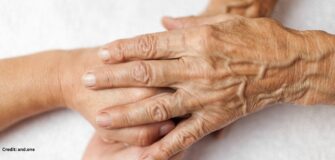Sarcoma: The ‘forgotten cancer’ demanding urgent attention
Share
Receiving a cancer diagnosis is a daunting and life altering event, even more so when your diagnosis is rare with very little awareness and public knowledge about it. This is the reality for approximately 52,000 Australians who are diagnosed with a rare cancer every year.
In fact, the unfortunate reality is that rare cancers make up a third of all cancer diagnoses, but long-term survival rates are poor and account for 42% of all cancer deaths in Australia.
However, there is hope for those impacted as each dollar invested in clinical trials in Australia yields an estimated return of $5.80, primarily driven by enhanced patient outcomes and elevated healthcare standards.
Sarcomas are rare and complex cancers of bone or soft tissue, accounting for less than 1% of adult cancers. Ewing Sarcoma is a rare subtype of sarcoma that can arise from any bone or soft tissue and predominantly affects adolescent and young adult patients but receives minimal funding due to low incidence and poor outcomes.
Devastatingly, sarcoma accounts for 20% of cancers diagnosed in childhood and makes up to 10% of cancers among adolescents and young adults (aged 15-25) – giving it the title of one of the most common cancers in children, and the deadliest.
Medical Oncologist Dr Vivek Bhadri has extensive experience with the treatment and management of patients with bone and soft-tissue sarcomas, witnessing firsthand the effects of the rare cancer.
“Sarcoma is often referred to as the forgotten cancer due to its rarity yet that is more reason for increased awareness and research into the disease, as the more focus it gets, the better the outcomes for those diagnosed.
“Specifically, Ewing Sarcoma commonly presents as non-specific pain in a bone or joint, therefore it is not uncommon to see Ewing Sarcoma initially misdiagnosed as a sporting injury or growing pains, with the lack of awareness of this type of cancer only increasing the risk of misdiagnosis in the initial stages,” says Dr Bhadri.
“Seeing the progress developed through clinical trials is what makes a difference to patients and their prognoses. Clinical trials are needed to evaluate new approaches to learn how people respond to them, what side effects might occur, and if the outcomes are improved,” Dr Bhadri continues.
Australian and New Zealand Sarcoma Association (ANZSA) CEO Dr Denise Caruso says clinical trials are pathways to providing patients with options, resources, and hope.
“Our involvement in over 30 sarcoma-related studies and clinical trials, both locally and internationally, ensures that Australian patients have access to the most up to date treatments. Yet we still need visibility and funds to ensure that sarcoma is not passed over in the cancer research funding space.”
Continued investment into uncovering new treatments for sarcoma is vital for improving survival rates and quality of life after treatment. As sarcoma tumours can arise anywhere in the body, at any age and are so varied, it is a challenge to receive the targeted funding needed to make further research possible.
“Supporting research, is the key to advancing patient treatments, accessibility of treatments and progressing the development of sarcoma care, increasing the chance of better patient outcomes for those diagnosed with this rare and debilitating cancer,” Dr Caruso says.
In line with Sarcoma Awareness Month (July 2024), the Australia and New Zealand Sarcoma Association (ANZSA) is spotlighting the importance of ongoing research, funding, and clinical trials to advance patient outcomes in the fight against sarcoma.
Research fuels the discovery of treatments, funding provides the necessary resources to carry out this critical research, and clinical trials offer the platform to evaluate and refine these treatments in real-world settings. For more information or to make a tax-deductible donation to support sarcoma research, Australians can visit www.sarcoma.org.au.
Ritchelle is a Content Producer for Healthcare Channel, Australia’s premier resource of information for healthcare.




